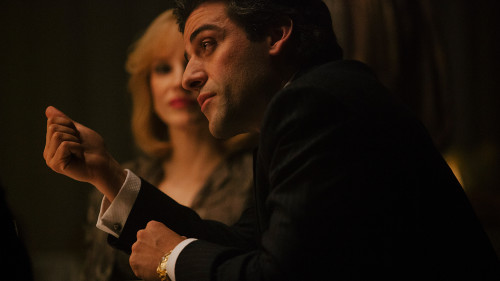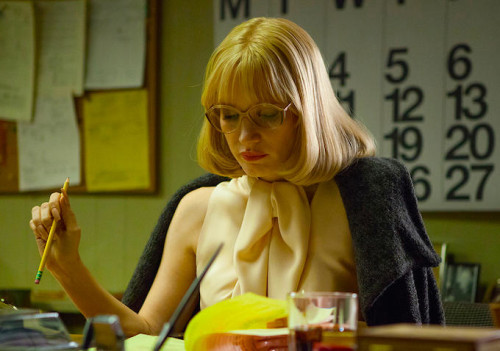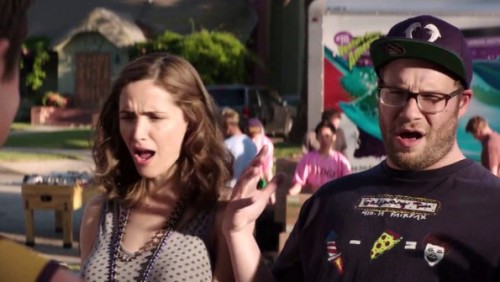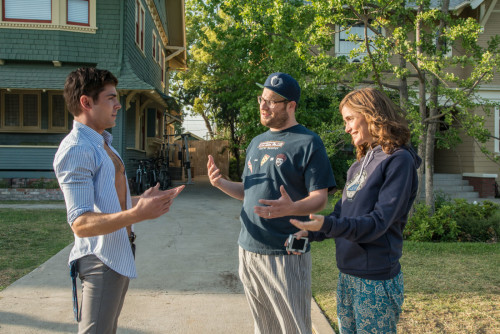Written by Elizabeth Kiy.
There’s a particular sadness I feel when I’m reminded of the lack of imagination Hollywood has when it comes to roles for women. At a certain point, between playing ingenues and grandmothers, most actresses inevitably become marooned in the blah, overly beige wasteland that is the wife role.
In theory there’s nothing wrong with this. Wife roles make more female characters, often fairly important ones. In male-driven films they might be the only female characters.
In real life, of course, women are wives and girlfriends and to deny the importance of the relationship many of us share with men, would be inaccurate and farcical. Yet, with a media landscape overwhelmingly dominated by films about men being men made by men for men, wife roles are often dim shadows of real women. Their purpose is mainly ceremonial, obligatory and insubstantial.
There’s generally only one type of wife we see on our screens, an annoying nag who zaps the male lead of his vitality and self-confidence. Think of the fiancee in The Hangover , who refused to understand the gang’s supreme need for male bonding and “just be cool” about their hijinks. Think of Katherine Heigl in Knocked Up or Sarah Silverman in School of Rock or Malin Akerman in The Heartbreak Kid . Think of any dumb old “Take My Wife, Please” “joke” or for that matter think of the women in just about any mainstream film.
If she’s not a nagging wife or girlfriend, a great comedic actress like Lisa Kudrow or Lauren Graham can be wasted on one-note supportive wife roles, women who seem to have nothing important in their lives but acting as a cheerleader for their spouse’s big dreams.
This story is nothing new. If you’re reading this site, I don’t doubt you know all about this, or that you could list scores of other examples. But it’s hard to list well-written wife characters in male dominated movies; Jessica Chastain’s character, Anna Morales in A Most Violent Year, and Rose Byrne as Kelly Radner in Neighbors are two successes I’ve come across recently.

A Most Violent Year
A Most Violent Year is a movie about the moral struggles of a businessman, named (perhaps a bit too on-the-nose) Abel Morales (Oscar Isaac ) to remain a good person and a strong, classically “good man” type when corruption is all around him. It is a movie about men and most of the story takes place between them. There are plenty of these kinds of films, made in The Godfather mould, and many of them are great films, but the knowledge that similar films about the epic moral struggles of women are unmade, unacclaimed or under-seen makes them hard to completely enjoy.
A Most Violent Year succeeds in giving a compelling female character in Anna Morales, as well as peppering in small female roles that keep women in the conversation, such as a granddaughter who hopes to take over her family business.

Anna is strong, sure of herself and completely competent, perhaps more so than the men around her, even if her gender forces her work into the shadows. The daughter of a gangster who is often referenced as a bad man and unseen foil to her husband Abel, she takes care of the business’s accounts, records and contracts. As her role is not official, she works through the books at home or when the office is closed, the woman forced to work behind her man. The film is structured around Abel’s attempt to purchase a piece of land from a group of Orthodox Jewish men and Anna is not allowed into the trailer when the official discussions take place, though he frequently makes trips outside to get her advice.
But she gets to do a lot more than that. While she is forced to take a hard line against Abel when she feels that their children and livelihood are in danger, the film is structured so that we understand her point of view and know that even Abel believes she is right. It is Anna who picks up a gun and gives a threatening speech to a nosy cop and Anna who gets to save the day at the end, thanks to her behind the scenes machinations.

Though Isaac gives a striking performance, it’s Chastian’s Anna who commands the film.
Neighbors
Seth Rogan was all set to make his new film, last summer’s Neighbors, when his wife, Lauren Miller read the script.
Miller, the writer-star of great two girls and a phone sex line comedy For a Good Time Call…, pointed out that the original plot, where a 30-something guy and his friends try to take down their obnoxious fraternity house that just moved in next door, made little sense and gave his wife nothing to do. In real life, his friends had no reason to be so passionate, no stakes to keep them involved in increasingly crazy and illegal pranks, but the wife character, worried about the safety and peace of their home, their child and her view of herself as a still young, attractive woman, definitely did.

According to Rogan, Miller convinced him that the wife would want to have fun to and that rewriting her character as a lead would give the film something rare: “An actual healthy couple that really likes each other.”
In the finished film, Rose Byrne plays Kelly, as Rogan’s equal partner. She actively participates in both the hijinks and the raunch comedy, when even having her cheer it on from the sidelines would be a relatively game-changing step.

The relationship between the couple became the heart of the movie, elevating it beyond disposable comedy to a light-hearted look at how people and relationships change as they get older and try to settle down. By posing the attempts to take down the fratboys as a partnership, the story of the film becomes the story of the couple, who work and play together.

Elizabeth Kiy is a Canadian writer and journalist living in Toronto, Ontario.